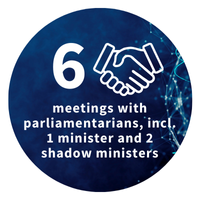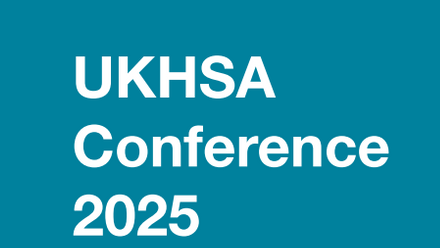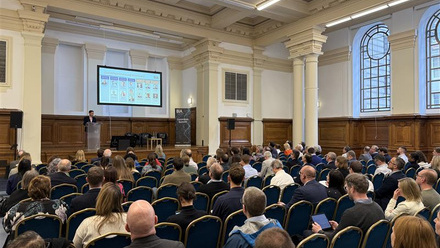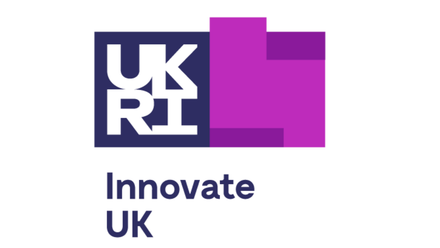CEO Update - 17 June 2024

Last week saw the key parties launch their General Election manifestoes. Each party had policies of interest to our sector and the team has done a detailed breakdown. This week sees a set piece hosting debate with the core parties talking about their approach to science and innovation at a live hustings at the Royal Society on Wednesday the BIA will be going and if you wish to view the live stream.
Remember we will summarise the whole campaign in a highlights package via our webinar one week before polling day. We will look at what we’ve learned from the campaign and consider what various election outcomes could mean for the sector and its stakeholders.

Between April and June 2024, BIA represented the life science sector to Ministers and senior policymakers. With a snap election on 4 July, BIA focused on preparing for the next government, postponing Parliament Day to autumn and limiting official engagements due to pre-election sensitivity.
We've hosted a UK-Swiss summit on engineering biology, met the Lord Mayor of London to discuss future sector skills, and engaged with parliamentarians on improving access to rare disease treatments. BIA also worked with London Economics on R&D tax credits, contributed to NHS secure data environments, and influenced UK clinical trials regulation with the MHRA.
Read more in our report which summarises BIA’s recent activities.
London Stock Exchange and JP Morgan London conferences on life sciences
Away from the campaign trail, the buzz about UK life sciences continues in city events hosted by the London Stock Exchange and JP Morgan this week. It's always good to see emerging UK companies speaking and the opportunities they present provide the backdrop to and necessity for the ongoing Mansion House agenda to get more UK-based investment to back UK scaling and growing companies.
LightOx investment
Telling the stories of companies like LightOx, a Newcastle-based BIA member who raised £1.5 million last week to help develop a ground-breaking treatment for patients suffering from early-stage oral cancer, brings what our sector does to life. Their oral gel is activated by a light device that targets a serious pre-cancerous condition called oral epithelial dysplasia.
Founded by Carrie Ambler, professor of biosciences at Durham University and serial entrepreneur Dr Sam Whitehouse, the company’s raise last week was led by the GMC Life Sciences Fund by Praetura. It is a collaborative fund managed by Praetura Ventures and made up of Bruntwood SciTech, Cheshire and Warrington Local Enterprise Partnership and Greater Manchester Combined Authority.
LightOx’s existing investors have also contributed, including Newcastle’s Northstar Ventures. It just goes to show how innovative funding rounds are being put together through 2024 and in all parts of the UK.
US BIOSECURE Act delayed
In a surprise move to many in Washington DC, the proposed BIOSECURE Act in the USA was not included in the final basket of amendments to the National Defense Authorization Act (NDAA) this year. The proposals were intended to remove Chinese companies from the supply chain for biotech companies seeking to do business in the USA.
The NDAA had been seen as the likeliest route for the BIOSECURE Act to make it onto the statute. However last week’s news doesn’t mean that it won't be attached to another Bill nor that biotech is no longer in the central focus of the national security policy community in the USA. There are several other mechanisms in play that are key to understanding the changing strategic picture both in the USA, Europe and the UK. It’s a topic I’m looking forward to discussing with many of you at the Life Science Leadership Summit today and tomorrow.
New Scientist on Deep Biotech
Check out the New Scientist campaign on Life Sceince Innovation 2024 this month for a piece by BIA's Senior Policy and Public Affairs Manager, Linda Bedenik, on how Deep Biotech is leading the way on sustainability.
Longitude Prize
In 2014, Challenge Works initiated a competition for the UK public to decide the focus of a new Longitude Prize. The choice of challenges was presented on the One Show on the BBC. The British public voted that tackling AMR was the challenge the prize should help solve.
Following a decade of developments, and entries from more than 250 teams worldwide, the £8 million Longitude Prize on AMR has been awarded to the PA-100 AST System from Sysmex Astrego. The goal is to replace the two- to three-day lab test process that doctors and patients must currently endure and end “just in case” prescribing that is prevalent as a result, which promotes the development of antibiotic resistance. It is a testament to the open innovation ethos to see a Swedish company win this UK-inspired prize.







